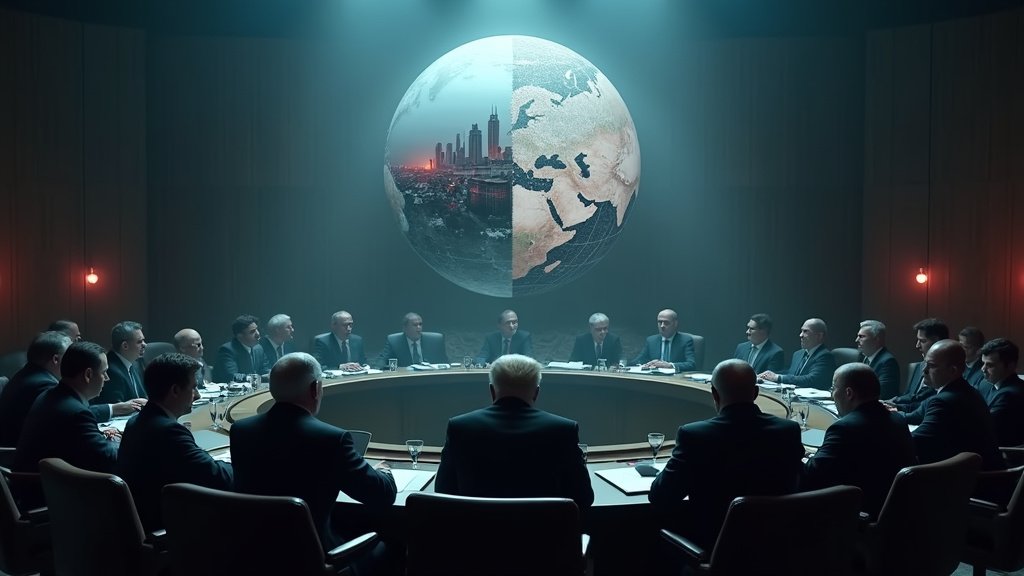International Spotlight Shines on Israel-Qatar Conflict and Nepal’s Internal Crisis
September 12, 2025, has emerged as a significant day in world news, dominated by two major developments: an escalating conflict between Israel and Qatar following a targeted airstrike in Doha, and widespread unrest and a government collapse in Nepal. The international community is closely monitoring the aftermath of these events, which carry significant geopolitical and domestic implications.
Israel-Qatar Conflict Intensifies Amidst Diplomatic Firestorm
The fragile peace in the Middle East was shattered with reports of an Israeli airstrike targeting Hamas leaders in Doha, Qatar. The attack, which resulted in the deaths of five Hamas members and a Qatari security officer, has sent shockwaves across the region and ignited a diplomatic firestorm. Qatar has vehemently condemned the strike, with Prime Minister Sheikh Mohammed bin Abdulrahman bin Jassim Al-Thani labeling it “state terror” and a “treacherous” violation of sovereignty. He asserted that Israel’s actions undermined international order and the prospects for peace in Gaza, directly impacting ongoing ceasefire negotiations.
The United Nations Security Council convened an emergency session, issuing a condemnation of the strikes on Doha. Notably, the statement, agreed upon by all 15 members including the United States, expressed regret for the loss of civilian life and solidarity with Qatar, though it did not explicitly name Israel as the perpetrator. This nuanced condemnation reflects the delicate geopolitical balance, particularly the United States’ traditional support for Israel, while also signaling a growing unease with Israeli actions.
President Donald Trump reportedly engaged in a “heated phone call” with Israeli Prime Minister Benjamin Netanyahu, expressing his displeasure and calling the strike “unwise”. Reports suggest Trump felt the operation did not advance the goals of either Israel or America, and that Netanyahu acted unilaterally. The US administration’s public rebuke of Israel, a rare occurrence, underscores the seriousness with which the White House views the incident and its potential to disrupt delicate diplomatic efforts, particularly concerning the Gaza ceasefire talks. Qatar has vowed to continue its mediation efforts despite the attack, emphasizing its commitment to its humanitarian and diplomatic role.
Nepal Plunged into Chaos: Protests Lead to Government Collapse
Meanwhile, Nepal is grappling with severe internal turmoil. Widespread protests, largely driven by a “Gen Z” movement against corruption, social media bans, and perceived nepotism, have escalated dramatically, leading to a government collapse. The unrest has claimed the lives of at least 51 people, with over 1,300 injured, and has seen over 12,500 prisoners escape from various jails across the country amidst the chaos.
The protests, initially triggered by the government’s decision to ban social media platforms, quickly broadened to encompass deep-seated frustrations with corruption and favoritism within the political establishment. Key government buildings, including Parliament, were reportedly vandalized or burned. The resignation of Prime Minister K.P. Sharma Oli has left a significant political vacuum, with national leaders, including the President and the army chief, engaged in urgent consultations to form an interim government. Former Chief Justice Sushila Karki has emerged as a leading candidate for the interim prime minister position.
In response to the unrest and ongoing curfew in the Kathmandu Valley, Nepal has implemented temporary measures to assist stranded foreign nationals. International travelers with visas valid through September 8 can now obtain exit permits and regularize their visas without additional fees, facilitating their departure from the country.
Global News Landscape
These two major global news stories — the escalating Israel-Qatar tensions and the internal crisis in Nepal — have dominated the international news cycle on September 12, 2025. Other news items from the day included reports on the ongoing conflict in Gaza, market updates, and a cybersecurity intelligence report, painting a picture of a world contending with significant geopolitical challenges and internal societal pressures.

